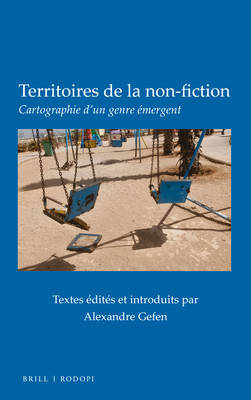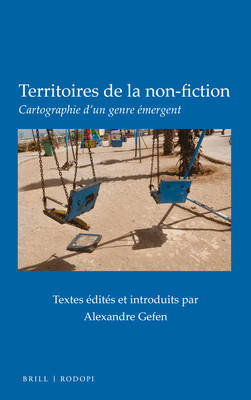
- Afhalen na 1 uur in een winkel met voorraad
- Gratis thuislevering in België vanaf € 30
- Ruim aanbod met 7 miljoen producten
- Afhalen na 1 uur in een winkel met voorraad
- Gratis thuislevering in België vanaf € 30
- Ruim aanbod met 7 miljoen producten
Zoeken
Omschrijving
La littérature du XXIe siècle débute avec le triomphe du document, des écritures d'enquête et d'information qui refusent la fiction. Ce volume vise est à inventorier et à comprendre les territoires de la non-fiction, désormais devenu un genre littéraire essentiel.
The literature of the 21st century begins with the triumph of the document, the investigative and informative writings that reject fiction. The aim of this volume is to inventory and understand the territories of non-fiction, which has now become an essential literary genre.
The literature of the 21st century begins with the triumph of the document, the investigative and informative writings that reject fiction. The aim of this volume is to inventory and understand the territories of non-fiction, which has now become an essential literary genre.
Alleen bij Standaard Boekhandel
+ 415 punten op je klantenkaart van Standaard Boekhandel
Beoordelingen
We publiceren alleen reviews die voldoen aan de voorwaarden voor reviews. Bekijk onze voorwaarden voor reviews.








